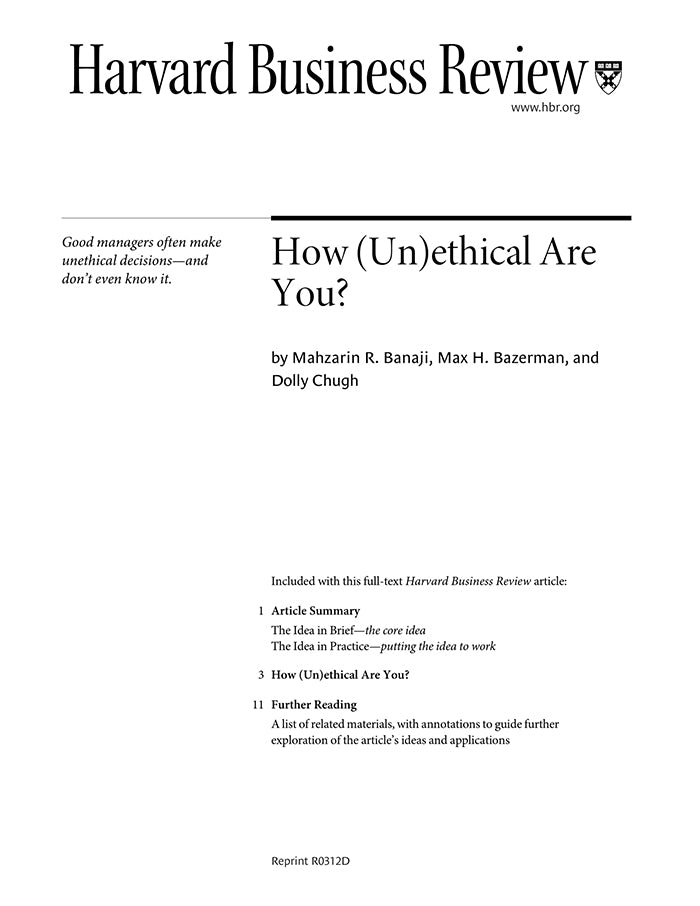How (Un)ethical Are You?
受取状況を読み込めませんでした
This article includes a one-page preview that quickly summarizes the key ideas and provides an overview of how the concepts work in practice along with suggestions for further reading. Answer true or false: "I am an ethical manager." If you answered "true," here's an uncomfortable fact: You're probably wrong. Most of us believe we can objectively size up a job candidate or a venture deal and reach a fair and rational conclusion that's in our, and our organization's, best interests. But more than two decades of psychological research indicates that most of us harbor unconscious biases that are often at odds with our consciously held beliefs. The flawed judgments arising from these biases are ethically problematic and undermine managers' fundamental work--to recruit and retain superior talent, boost individual and team performance, and collaborate effectively with partners. This article explores four related sources of unintentional unethical decision making: implicit bias--judging according to unconscious stereotypes rather than merit; in-group bias--favoring people in their own circles; a tendency to overclaim credit; and conflicts of interest. To counter these unconscious biases, traditional ethics training is not enough. You should gather better data, rid the work environment of stereotypical cues, and broaden your mind-set when making decisions.
【書誌情報】
ページ数:16ページ
サイズ:A4
商品番号:HBSP-R0312D
発行日:2003/12/1
登録日:2012/3/28


